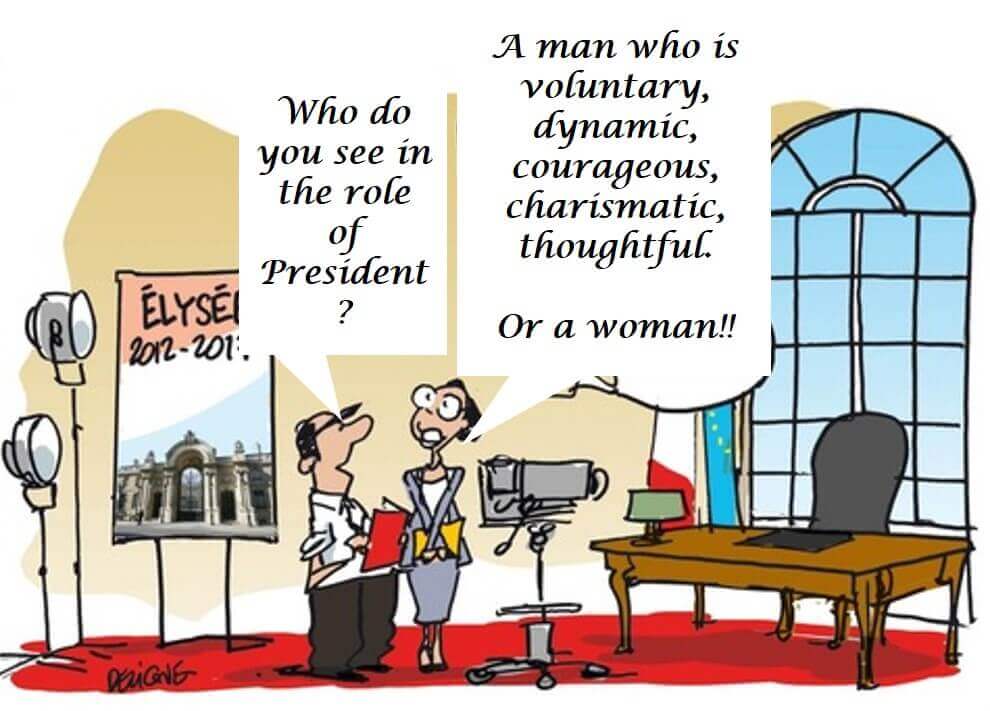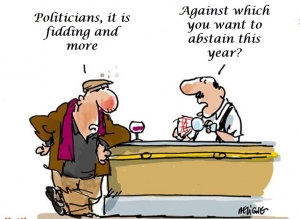During elections, I asked myself this question:
What would happen if these men and women applied the 14 principles of LEAN that have been set by Jeffrey LIKER in his book on the Toyota model?
I searched for 5 principles, what should be their attitude if they wanted to act on that philosophy.
1st principle : Base your management decisions on a long-term philosophy, even at the expense of short-term financial goals.
Our leaders should make decisions, the results of which are found in the long term. They should think about all of their fellow citizens by making choices that will serve them in 6 months, 1 year but also 5, 10 or 15 years.
But they always have short terms goals. In politics, the short term, the next election! (this one is never far away!). And to be reelected, they prefer not to take decisions in the long term, the choices can be tricky.
In a company steeped LEAN, actors working on the long term with a need for collective work, teamwork. There are pushy in some companies, but these are not LEAN actors. In politics, the long term work is very hard sell: individualism and short term are too high. The solution is undoubtedly a radical solution of the type: two terms and after, obligation to retire and leave his place. Thus, we do not take decisions for re-election! Politician, this should not be a job. This should only be a mission.
5th principle : Build a culture of stopping to fix problems, to get quality right the first time.
How often, laws are passed in haste, and many amendments are added. All this is done piecemeal. Our leaders do not always look for the root cause of the problem. Rather, they work in curative and rrarely in preventive!
In a Lean company, employees are trained to use many tools to work in team. Politicians are trained in tools to improve their look. Perhaps it would be necessary to add training on project management, and on problem-solving tools. They would learn that a problem-solving session must be prepared, and does not take place at night after a day of discussion.
8th principle : Use only reliable, thoroughly tested technology that serves your people and processes.
Here I will not talk about technology, but rather principles, methods and services. How often do we see examples that work perfectly in other countries (or companies) and we do not want to apply to the state level for any reasons. We must always innovate by applying the principle of PDCA.
Research and use of best practices are widely used in industry. At the state level, it is probably because ministers want their law, their name! we unfortunately often change without implementing best practices. The typical example is in the French Ministry of Education: What Minister has not passed a law in her name! Never long term!
10th principle : Develop exceptional people and teams who follow your company’s philosophy.
This principle requires a stable culture, high culture. The values and beliefs must be shared by the entire team. A politician who is elected, is with a program. It should therefore apply and do apply for all its employees.
But often this is not the case: there is an obstacle in the decisions validation chain (chain of signatures in different departments and administrations), pending the next elections (this is really a cause of failure that we find often!).
In a Lean enterprise, an exceptional leader is one who works for the future of the company he works for. In politics, unfortunately, a great man is one who works for his future. The stability over time is much less evident in politics as in business, the individual is actually much more brought to work his future rather than the community.
12th principle : Go and see for yourself to thoroughly understand the situation.
As much is the practice in many companies have deployed LEAN, so this does not happen at all in politics.
Unfortunately, very few of our leaders come from the world of work. For the most part, they have studied in school administrations and therefore have no knowledge of the practice. And the problem is that their employees (officials) have also no knowledge of the practice.
In a Lean enterprise, many people come from the field and went up the ladder. We should try this at the state level. Why not set up an apprenticeship in politics, with regular workshops on practical themes!
So how to make it more LEAN politics? Of the five principles, the main obstacle that emerges is:
Do it just needed to be re-elected. Base our policy on the re-election.
In a company LEAN stakeholders are not elected. They acquired the philosophy and work on the long term. In politics, because of the elections, politicians will never work in the long term. We can not remove the elections leaving lifelong leaders (called a dictatorship). Why not introduce a rule limiting the duration in time and integrate the fact that politics should not be a profession, but a mission! A mandate, and then I leave my place! And if after a few years, it is effective that my mission was a success, so I can come back. This is the new LEAN tool for politics.
Policies then think more about our future, the future of our country and less to them.


